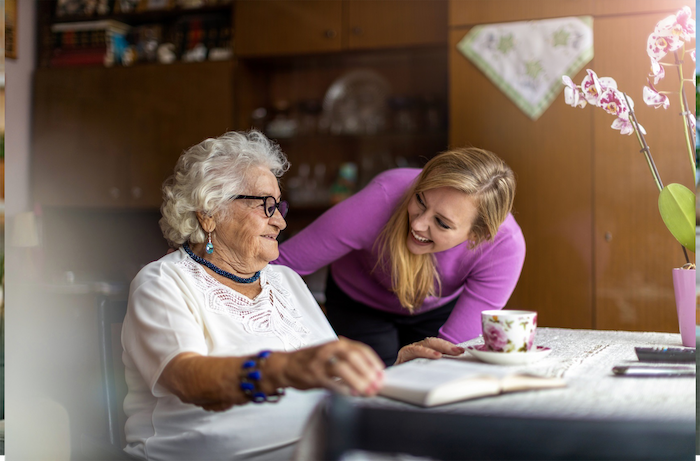
Is It Time for Home Care? 6 Subtle Signs Your Parent May Need Extra Help
September 16, 2025
It is not always obvious when an aging parent needs more support. Sometimes it is not a dramatic fall or a sudden illness but small, gradual changes such as missed meals, confusion, or even withdrawing from favorite activities. These quiet shifts can signal bigger risks ahead if left unaddressed.
For families in Wilmington and Southport, recognizing the early warning signs can make all the difference in keeping loved ones safe, healthy, and independent.
Professional homecare services in Wilmington provide compassionate support before a crisis develops. Here are six subtle but important signs that it may be time to consider in-home care Wilmington NC families can rely on.
1. Forgetfulness That Impacts Safety
Occasional forgetfulness is normal. But if your parent is leaving the stove on, forgetting to lock doors, or skipping medication doses, their health and safety could be at risk.
Red flags to watch for:
-
Missed doctor’s appointments or unpaid bills piling up
-
Confusion about dates, times, or locations
-
Difficulty keeping up with medication schedules
Even small lapses can snowball into dangerous situations. Homecare services in New Hanover County and Brunswick County can provide medication reminders, help establish routines, and ensure your loved one has the daily support they need.
According to the Alzheimer’s Association, common early signs of dementia include confusion, memory loss, and difficulty completing familiar tasks. If you see these symptoms, it may be time to take action.
2. Decline in Personal Hygiene or Appearance
Has your parent stopped dressing as neatly as they used to? Are they skipping baths or wearing the same clothes for days? A noticeable change in grooming or hygiene often points to something more than just “having a rough day.”
Possible causes include:
-
Mobility issues that make bathing difficult or unsafe
-
Depression or anxiety
-
Fear of falling in the bathroom
With the right support, your parent can maintain dignity and feel confident again. In-home caregivers assist with bathing, dressing, and personal routines in a respectful way that protects independence.
See how our caregivers support daily routines with compassion and respect.
3. Weight Loss or Changes in Eating Habits
Food can quickly become a challenge for aging adults. Your parent may struggle to prepare meals, lose appetite due to loneliness, or forget to eat altogether.
Warning signs include:
-
Noticeable weight loss or changes in appetite
-
Expired or spoiled food in the refrigerator
-
Empty cupboards or reliance on quick, unhealthy meals
Companionship care provides more than just meals—it ensures your parent has someone to share them with. Caregivers can assist with shopping, preparing nutritious food, and encouraging better eating habits.
The National Institute on Aging offers helpful tips for senior nutrition, highlighting how meal support can improve energy and wellbeing.
4. Increased Isolation or Mood Changes
Isolation can be as harmful as physical decline. If your parent is withdrawing from friends, skipping church, or showing sudden mood changes, it could indicate loneliness, depression, or early cognitive changes.
Isolation is linked to:
-
Higher risk of falls
-
Greater likelihood of depression
-
Increased memory issues in older adults
Companionship is one of the most powerful aspects of homecare. Caregivers provide daily connection, conversation, and reassurance, helping to improve emotional health and prevent the downward spiral of loneliness.
Connect with a caregiver who offers both support and companionship.
5. Unsteady Movements or Fall Risks
Falls are one of the leading causes of serious injury among older adults and even a single fall can drastically change quality of life. If you notice bruises, hesitation when walking, or reliance on furniture for balance, it is time to step in.
Caregivers can help by:
-
Assisting with mobility around the home
-
Removing trip hazards
-
Offering supervision during risky activities
According to the CDC’s fall prevention guide, simple daily support can significantly reduce the likelihood of falls. With senior care Wilmington NC families can trust, your loved one stays safer at home while continuing to enjoy independence.
6. Caregiver Burnout or Family Tension
Sometimes the biggest sign is not from your parent but from the family members already providing care. If a spouse or adult child is stretched too thin—juggling work, travel, or long-distance responsibilities—burnout can set in.
Signs of caregiver burnout include:
-
Fatigue and stress
-
Feelings of guilt or resentment
-
Strained family relationships
Bringing in professional support provides relief for family caregivers while improving the consistency and quality of care. Homecare is not about replacing family—it is about making sure everyone is supported.
See why families across Wilmington and Southport trust our experienced team.
Support That Fits Their Needs (And Yours)
If more than one of these signs feels familiar, now may be the time to explore professional homecare services in Wilmington. Ignoring the early red flags can lead to avoidable accidents, health crises, or family stress.
At Coastal Companion Care, we provide customized in-home care Wilmington NC families can count on. From a few hours a week to daily support, our caregivers bring companionship, safety, and peace of mind.
Reach out today for a consultation and let us help you create a plan that fits your parent’s needs and supports your family, too.
